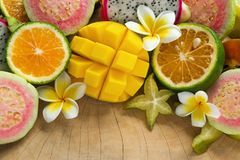As part of the “Christmas is sowing happiness” campaign, the Regional Directorate of Health reinforces awareness about the adoption of healthy behaviours and food choices. There are several messages that the management has been disseminating on social networks and in different contexts in the community.
Regarding food, this Tuesday, the DRS reiterated the importance of taking advantage of the variety that the festive season brings to the table but advised that everyone should plant their meals with moderation in mind.
Suggestions of the Regional Directorate of Health:
– Start Christmas Eve and Christmas Day with a healthy and balanced breakfast:
As with other days of the year, start your day with a balanced breakfast, leaving aside sweets and other less healthy foods. This small step will help you stay satiated and prevent you from opting more easily for less healthy options.
– Include soup in Christmas meals:
Give preference to vegetables when preparing the starter. Consider using legumes such as beans, peas, or chickpeas. This type of soup promotes satiety for a longer period of time, hydrates, is a source of vitamins, fibre, minerals, antioxidants, and provides fewer calories, compared to other frequent starters at this time.
– Give preference to simple culinary preparations:
Make stews, or steam or grill food as these are healthier than frying.
– Accompany traditional meals with vegetables and other vegetable products:
From traditional boiled cabbage, broccoli, carrots, green beans, pea, and chestnut purees, to zucchini or courgettes, they are excellent ways to accompany traditional dishes and reduce calorie, animal fat, and cholesterol intake.
– Have quality fresh bread, of several varieties, including some whole wheat bread on the table:
Traditional, quality bread provides fewer calories, fat, and salt than crackers and other snacks, as well as having excellent digestibility and being a good source of vitamins.
– Invest in a colorful fruit salad:
It should be part of the centre of every Christmas table. Fruit salad is highly nutrient-dense, provides many nutrients and fewer calories than other sweet desserts. It is also a source of fibre, water, and therefore may reduce the desire to eat other desserts.
– Decorate the table with nice water jugs and choose eye-catching water glasses:
On these festive days, have water on the table. It is a healthy option that contributes to better intestinal function, to the regulation of blood pressure, increases satiety, and above all avoids the excessive consumption of sugary and alcoholic drinks, which are of higher caloric value and add other health risks.”
There you go!
Samantha Gannon
info at madeira-weekly.com
Views: 5






